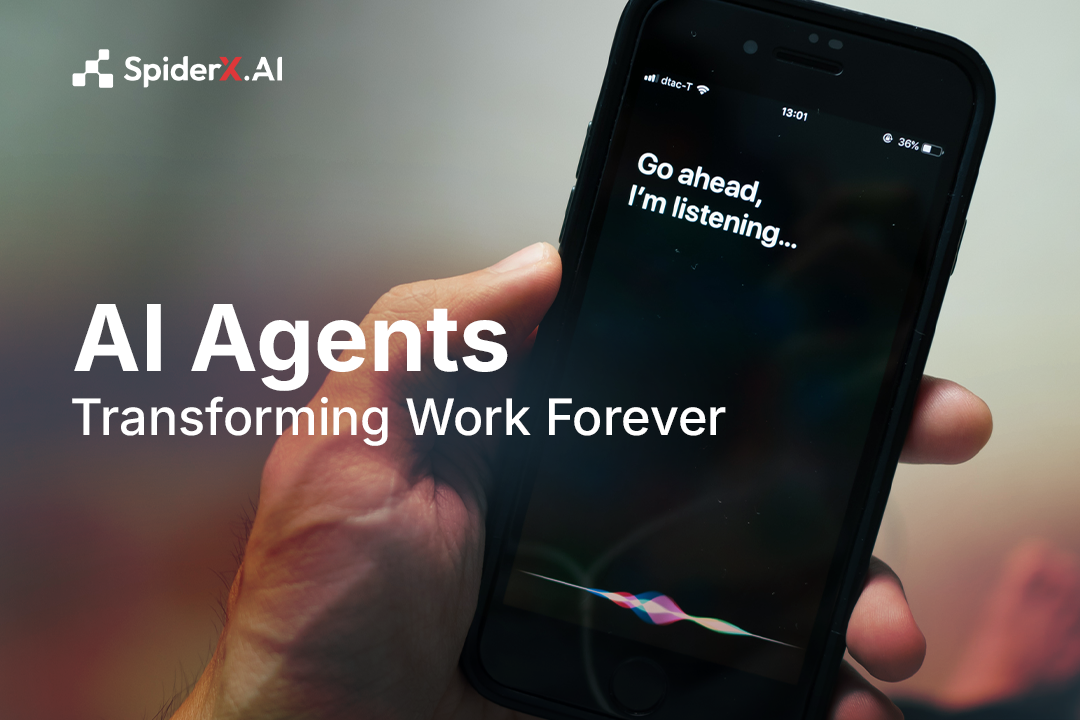Many still debate what exactly makes an AI "agent." Do they have to be fully autonomous? Must they demonstrate complete agency? My take is simple: it's not a binary, it's a spectrum. Software, at its core, can be more or less agentic depending on how it's designed and what it’s intended to do.
I find it useful to classify AI agents into different types based on their behavior and sophistication:
1) Reactive/Reflex Agents
These agents operate on a straightforward if-then basis. They react immediately to inputs without maintaining any internal memory of past events. Think of a thermostat: it senses the room temperature and adjusts heating or cooling without any planning. These agents are useful in scenarios where simple, real-time responses are enough.
2) Model-Based & Goal-Oriented Agents
Moving a step up the spectrum, these agents maintain an internal model of their environment. By keeping track of state and context, they can handle more complex or partially observable situations. They set and pursue specific goals, much like a self-driving car navigating through traffic. The key here is not just reacting but planning ahead to achieve a desired outcome.
3) Utility-Based & Learning Agents
At the more sophisticated end, we have agents that evaluate multiple possible outcomes based on a “utility” function, essentially, they weigh how beneficial an action is before executing it. Many of these agents also incorporate learning algorithms, allowing them to adapt over time. For instance, digital assistants like Siri or Alexa start with predefined behaviors but can improve their interactions through user feedback and machine learning. These agents often integrate various AI models (including large language models or LLMs) to interpret complex data, make informed decisions, and even remember past interactions.
Common Threads Across All Agent Types
- Use of AI Techniques: Regardless of their level of autonomy or complexity, most agents leverage some form of artificial intelligence, from simple rule-based systems to sophisticated machine learning algorithms.
- Tool Integration: They often have access to a range of “tools” or external data sources (via APIs, sensors, etc.) that help them interact with and influence their environment.
- Memory & Context: Even at a basic level, agents keep a notion of “memory” while operating. More advanced agents extend this concept to persist across multiple interactions, creating a richer context for decision-making.
Looking Ahead: Collaboration Among Agents
In the future, we can expect agents to go beyond isolated functionality. Imagine a network where agents can discover each other and collaborate to achieve higher-order goals, coordinating actions, sharing context, and optimizing outcomes collectively.
So, What Are These AI Agents Anyway?
AI Agents are software systems that use artificial intelligence to accomplish specific goals through a series of steps, whether those steps are predetermined or dynamically generated.
No matter how you define or classify them along this spectrum, the bottom line remains: agents are designed to be useful to humans, helping us work smarter and more efficiently.
SpiderX AI Is Leading the Charge
As agents are set to become an integral part of our everyday lives, SpiderX AI has taken charge to guide us toward a future where Humans and AI Agents work hand-in-hand to automate workflows and push innovation even further. Our AI Agents are in a class of their own and their sheer versatility makes them uniquely qualified to take your business to new heights.
Meet our team of AI Agents:
- GECKO: More than just an agent, Gecko serves as your intelligent hiring partner. It efficiently sifts through numerous resumes to identify top talent by leveraging advanced learning and analytical capabilities, providing actionable insights with remarkable speed.
- ZOE: Envision a marketing AI that not only assists your customers in finding precise answers but also delivers them instantly, whether on your website, via WhatsApp, Messages, Phone Calls, or Emails. Zoe’s robust capabilities extend well beyond these functions, enhancing overall customer engagement.
- AXEL: Axel is an AI-driven automotive sales agent that guides customers through exploring car models, scheduling test drives, and obtaining financing options. It effectively transforms casual visitors into committed buyers by streamlining the entire sales process.
- DINEO: Dineo excels at optimizing guest experiences by managing real-time bookings, accommodating special requests, and ensuring smooth guest flow. Its efficient table management ensures that every seating opportunity is maximized while maintaining guest satisfaction.
- SAGE: This AI agent seamlessly integrates with ERP systems, technical manuals, and extensive CRM records to provide not just search functionality but deep, actionable insights tailored to your business needs.
- E2M: As the ultimate AI event assistant, E2M simplifies every aspect of event management, from streamlining attendee registration to guiding guests through venue navigation, ensuring that every interaction is both swift and effortless.
SpiderX AI Agents provide personalized solutions to your unique business requirements. With our agents automating the majority of your tasks, you can focus on providing the best service to customers. If you own a restaurant, just focus on the food, if you own a retail business, just focus on the products, if you’re hiring, just focus on welcoming the best candidates. It’s that easy.



